Wilson Logistics: Company-Sponsored CDL Training
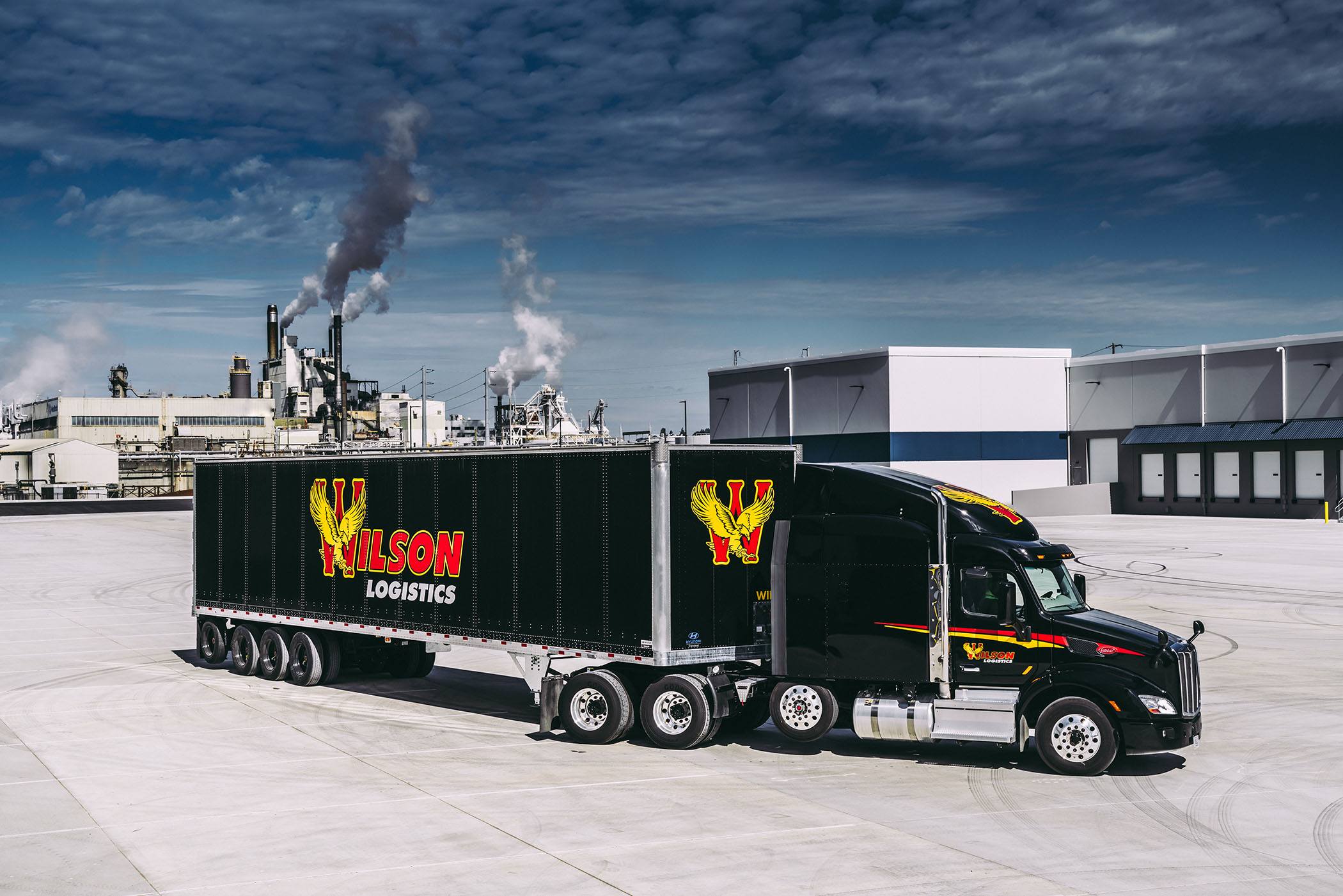
Table Of Contents For This Page
- Introduction To Wilson Logistics Paid CDL Training Review
- Wilson Logistics Review
- About Wilson Logistics CDL Training
- Apply For Paid CDL Training
- Getting Hired With Wilson Logistics
- Wilson Logistics Facility Locations
- Wilson Logistics Cost
- Wilson Logistics Preparation For CDL Training
- Wilson Logistics Itinerary
- Working For Wilson Logistics
- Wilson Logistics Company Driver Pay And Benefits
- Wilson Logistics Employee Policies
- Wilson Logistics Equipment
Introduction To Wilson Logistics Paid CDL Training Review
At TruckingTruth, we've done a ton of research for you! We've contacted the company recruiters at Wilson Logistics and put together a fantastic review of the Wilson Logistics paid CDL training program.
We'll start you off with our opinion of their paid CDL training program and then we'll take you through all of the key features and important information you'll need to know. Some of what we'll cover:
- Student Hiring Requirements
- Truck Driving School Locations
- Driver Pay During Training
- Advantages Of Working For Wilson Logistics
- Cost Structure Of CDL Training
- CDL Training Itinerary
- Wilson Logistics Pay And Benefits
- Vacation Pay And Home Time
Wilson Logistics Has The Sweetest Looking Trucks On The Planet!
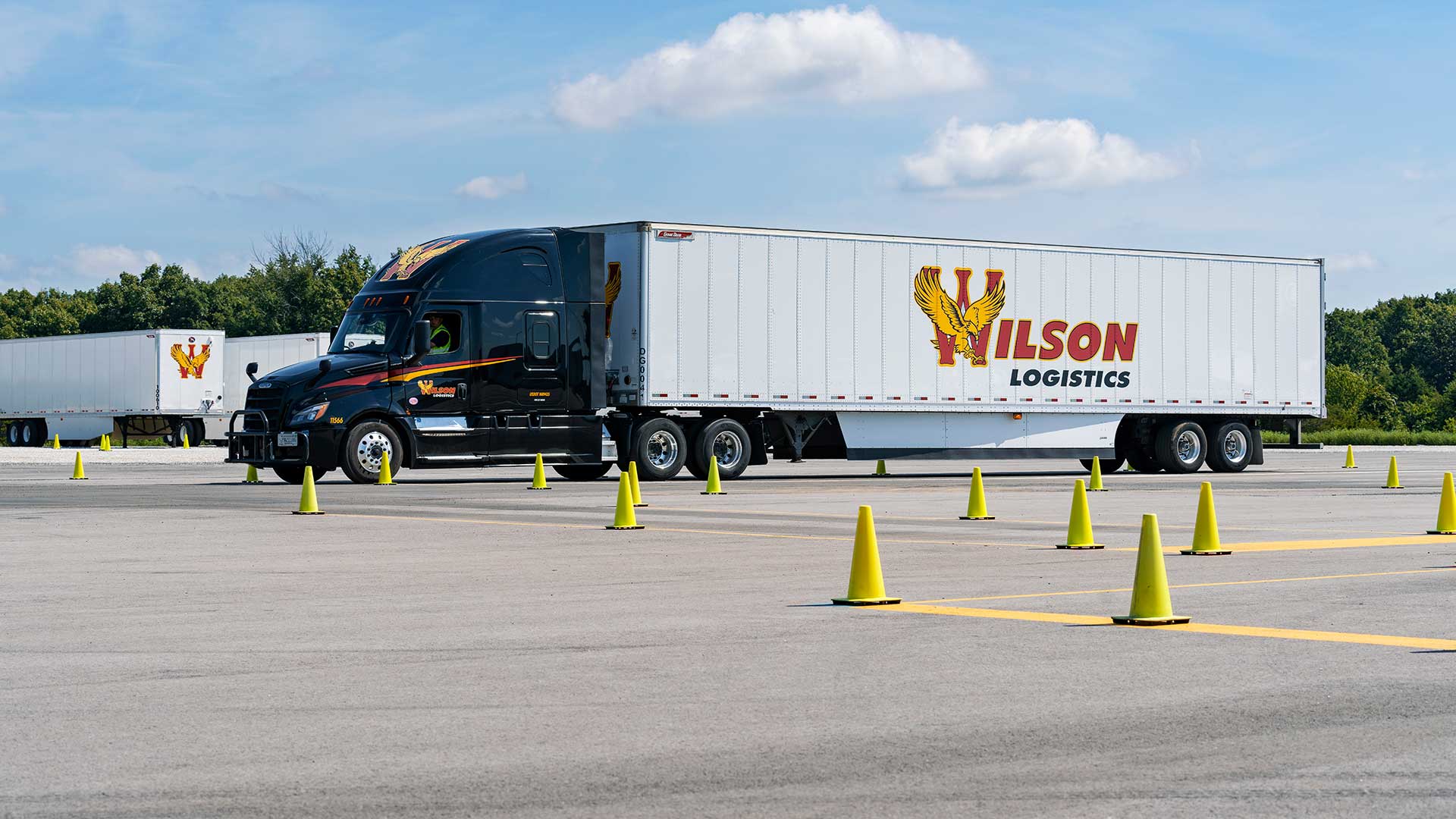
Wilson Logistics has some of the most beautiful black trucks you'll ever find and they're well equipment for comfort and convenience. You'll learn more about their equipment later in this review.
Read on!
Wilson Logistics Review
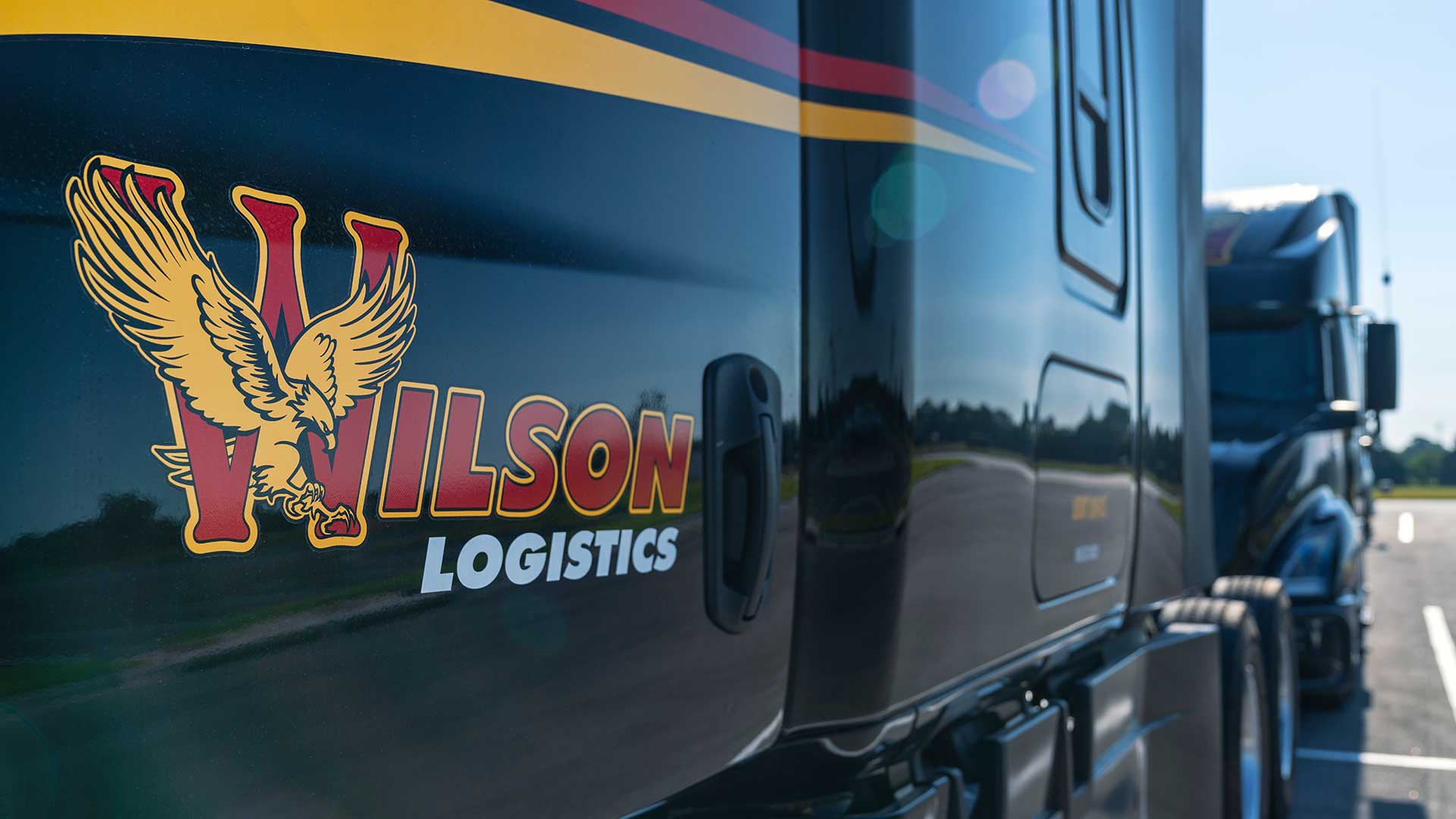
Wilson Logistics has the advantage of being a smaller company with a smaller class size, so less students per truck. The three divisions of Wilson Logistics, Wil-Trans, and O & S Trucking allow new drivers to have more opportunities to get more regional routes early on.
Not fulfilling the 1-year contract will leave the driver on the hook for the total cost of training, a very reasonable $3,500.
About Wilson Logistics CDL Training
Wilson Logistics was founded over 50 years ago and today is an established operation, with over 500 trucks. The Wilson Logistics family of companies also includes O & S Trucking, and Wil-Trans. Each company is run as a separate division, based on shipping lanes, and hauls refrigerated freight almost exclusively.
Additionally, Wilson Logistics operates their own CDL schools in Missoula, MT, & Springfield, MO. They are family owned and operated, with a rider program, a very liberal pet program, and high starting pay. Drivers will be assigned to a company/division based on their lane preference.
Getting Hired With Wilson Logistics
Wilson Logistics Minimum Hiring Requirements
- Must be 23 or older
- Must have possessed an active Drivers License for 3 years or more
- Must possess a valid social security card
- Must be a U.S. citizen or possess an alien registration card
- Must be able to read, write and speak the English language, in accordance with DOT regulations.
- Must be able to verify past 3 years of employment history prior to joining CDL program
- Must pass a DOT physical and controlled substance and alcohol test
- No DWI, DUI, or reckless driving convictions within the last 5 years
- Felony convictions will be reviewed
Wilson Logistics Hiring Areas
Where do you hire from and what are your no-hire zones?
Wilson Logistics hires from all 48 lower states, and will try to fit the driver into whichever shipping lane they prefer.
Wilson Logistics Facility Locations
Wilson Logistics CDL Training Facilities

Where are your schools located?
- Missoula, MT
- Springfield, MO
Wilson Logistics Drop Lots And Terminals
- Missoula, MT
- Springfield, MO
TruckingTruth's Take On Wilson Logistics So Far

As with many smaller companies, new drivers may normally be able to receive more personalized instruction during training with small class sizes. They place a high emphasis on being pet-friendly for those who would like to bring their pets along, and also make the investments in newer, updated equipment.
Wilson Logistics Cost
Cost Structure Of Wilson Logistics
$3,500 CDL training course covered by signing a one year contract with Wilson Logistics.
$200 a week advance for food while in 3 week CDL training course (You pay it back in small $25 week payments once you start earning paychecks.)
No money down, credit check or cost to you – if you opt out before the one year contract you would be responsible for cost of training.
30,000 miles of team driving with trainer after completing 3 week CDL training course. (Pay tiers up .12cpm or $600 weekly whichever is greater and then to .14cpm or $700 weekly whichever is greater.)
What are all of the up-front costs?
There are no upfront costs. Potential CDL holder would need to bring funds to cover food and drink the first week before the $200 weekly advance begins.
Will my meals be paid for?
Your room comes with a complimentary breakfast and lunch is provided at the terminal.
Will my room be paid for?
The Hotel stay will be paid for during the on-site training portion (week 1).
Can I pay for my CDL training up front and have no further obligation?
No, there is no option offered to pay up front.
What are the obligations for paying back the schooling after graduation?
CDL school and training are free as long as a one-year contract is fulfilled. Leaving Wilson Logistics before satisfying the contract will leave students responsible for the entire amount of $3,500.
TruckingTruth's Take On Wilson Logistics's Cost Structure

Wilson Logistics's obligations are typical of many programs. It is not paid back over time, but forgiven all at once after a year of driving.
Note that not fulfilling the one-year contract will make you responsible for the full training amount. As always, we recommend you stay with your first company for at least 1 year, anyways.
Wilson Logistics Preparation For CDL Training
Items To Bring To Wilson Logistics
- Birth Certificate (Original or Certified Copy with a state seal)
- Bring any corrective lenses you need, including readers.
- Social Security Card
- Valid Driver’s License
- Proof of Residency (only for those who reside in Montana)
- Slip-resistant shoes
- Note pad for taking notes and doing homework
- Rain-gear/Jacket
- Any medications you are currently taking
- At least 7 day's worth of clothes, a pair of hard-sole shoes, work gloves, jacket.
- Bedding (pillow and blanket, twin sized sheets if you would like)
- Towels, washcloths, all other necessary grooming items you may need. A laundry bag is recommended, to store soiled items.
- Clipboard, pens, calculator, trucker's atlas, battery operated alarm clock.
- Bring your personal belongings in a soft sided duffel bag, rather than a suitcase if possible.
Do I need to get my CDL permit before attending school?
Wilson Logistics provides training, transportation and payment to gain your CDL permit once you arrive for their apprentice program.
Do I need a US Passport?
No, you do not need a U.S. Passport. However, you will be required to provide identification at training and a U.S. Passport may be an acceptable form.
Which CDL endorsements are required or encouraged?
No additional endorsements are required.
Preparation For Wilson Logistics Paid CDL Training
Though not required, we always recommend getting a passport. Hauling freight into Canada has become more streamlined, and a passport will give you more options for the future.
The same applies to endorsements. We advise getting all available endorsements up front, which will keep you prepared for future opportunities.
Bring as much paperwork with you as you can, including any medical records or forms which could prove past employment and help with the background investigations. Always be certain that your birth certificate and social security card are ul-laminated originals.
Wilson Logistics Training Itinerary
Wilson Logistics CDL Training Itinerary
Describe the schooling itinerary a bit:
Arrive on a Monday Morning for drug screens/physicals and prepare with in-house instructors to take the CDL Permit test.
Once a CDL permit is held, you will begin hands on practice in the truck with Wilson Logistics trainers before joining an OTR professional instructor for a duration of 75 hours minimum.
Once the apprentice has become a CDL holder, they will complete 40,000 miles over the road with a professional driver/trainer before going solo in their own truck.
How long is the training overall?
The entire process from beginning to going solo will take 2-3 months average.
How much time on the range backing up?
The student and driver/trainer will both be asked for weekly evaluations in multiple categories to ensure there is a sufficient hands-on training in backing and other subjects.
During the practice range phase, how many students share one truck?
Usually the maximum number of students per truck is 1-2
How much time in classroom?
Wilson Logistics's program is designed around hands on training in the truck. The initial 3 days will be spent in the classroom while the rest of the program will take place in the truck itself.
TruckingTruth’s View On Wilson Logistics Training Itinerary

You will spend very little time in a classroom during CDL training, compared to many other programs. Most of the program will be in-truck activities to prepare you for driving solo.
As Wilson Logistics is a smaller organization, you will have the advantage of small class sizes, and fewer students per truck in training.
On The Road Training Itinerary With Wilson Logistics
Is the training period based on number of days, number of driving hours, number of miles, or some combination?
The training program is based on safe completion of verifiable miles. (40,000 miles with trainer)
How much will I be making when I'm on the road with a trainer?
Once you are a CDL holder, you will make .12cpm for all miles dispatched or $600/week prorated when you get in the truck (whichever is greater) for the first 10,000 miles. Once the first 10,000 miles are completed, you will be paid .14cpm for all miles dispatched or $700/week prorated when you get in the truck (whichever is greater) for the remaining 20,000 miles.
Do they run your trainer and you as a "team" operations or like a solo truck?
Initially, before a student has a CDL, the trainer acts as an instructor while the student drives. Once the student has a CDL there is an evaluation period of 2,500-3,000mi where the trainer ensures that the student is adequately trained & experienced to perform as a team.
On The Road Training Policies at Wilson Logistics
Do students share a truck?
No, one student per trainer & truck.
Do you have a "No sleeping in the top bunk while the truck is rolling" policy?
Yes, nobody is allowed to sleep in the top bunk while the truck is in motion.
What is your policy for handling disputes between trainer and student?
Disputes are handled on a case by case basis by management, and Wilson Logistics abides by federal guidelines regarding a hostile work environment.
Can you get a non-smoking trainer?
Yes, a non-smoking trainer may be requested.
What are the company's minimum qualifications to be a trainer?
Trainers are selected according to tractor trailer history, clean safe driving records and ability to effectively pass a trainer driver course.
TruckingTruth’s View Of Wilson Logistics On The Road Training

The length of their training is longer than the average program, but it's an excellent program. We like the way they send you out on the road right away with your permit and help you learn out in the real world instead of in a parking lot or on a handful of back roads. You'll also be making money more quickly with this type of setup than you will at some of the other paid CDL training programs.
Working For Wilson Logistics
Advantages Of Working For Wilson Logistics
- Top industry pay.
- Family owned and operated.
- Friendly pet and rider policy.
- Hands on training with a reputable company.
- Newer equipment both in training and as a company driver.
- New, updated equipment with APU’S, Inverters and Epicvue satellite system available.
Wilson Logistics Company Driver Pay And Benefits
Wilson Logistics Company Driver Pay
How much will I be making once I'm running solo in my own truck?
Company Drivers are paid at top scale of $.40/mile solo or $.44/mile team.
When will I receive pay increases?
Pay increases are based on verifiable miles and driving history. Drivers are paid at top scale upon successful completion of the training program (3-4 months on average).
Do you offer a Fuel Bonus?
JPT offers a fuel incentive that allows drivers to earn up to an additional $.05/mile
What About Vacation Time?
- 1 week after 1 year + $500
- 2 weeks after 3 years + $1000
- 3 weeks after 5 years + $1500
Wilson Logistics Company Driver Benefits
What health insurance and benefits do you have?
Wilson Logistics offers health insurance with all major standard benefits and options including life insurance and 401k retirement plans, vacation time, and optional per diem plan.
What is the average cost of benefits?
Benefits can vary from $11/ month and up depending on the package and premiums selected.
How long until you qualify for benefits?
Benefits will go into effect within 30-60 days of becoming a Wilson Logistics employee
TruckingTruth's View On Wilson Logistics Company Driver Pay

Wilson Logistics's starting solo pay is on the higher side compared to others, and they offer very generous fuel bonuses and vacation plans.
Wilson Logistics Employee Policies
Pets & Travelers Policy
Do you allow pets?
Wilson Logistics has a flexible pet policy with no pet-deposit. As a general rule they have a “three-heartbeat” policy. 1-2 pets are fine, additional pets need to be approved on a case by case basis. Students are not allowed pets for the duration of the training program and must complete a 60 day solo probationary period before they are allowed to have a pet on board.
What is the company's rider policy?
Each rider must be approved to ensure they are covered by insurance; students are not allowed to have riders until they have passed a 60 day solo probationary period.
Wilson Logistics Dispatching Policies
Can a new driver run regional or dedicated right after school?
Dedicated runs are reserved for proven drivers that have earned them with consistent safety and reliable service. Company drivers typically run specific lanes that have been determined to be profitable by the company.
Will there be any NYC?
No, Wilson Logistics doesn’t operate in New-England except to get drivers who live there, home.
Are you forced dispatch? Is the driver given any options for different loads?
Their policy is to not force dispatch. Company drivers have the option to refuse freight based on safety and service conflicts.
How often can I expect to be home? For how long at a time?
Company driver home-time is earned at the rate of 24hrs (1 day) at home for every 168hrs (7 days) on the road.
What percentage of freight is drop and hook?
Wilson Logistics hauls primarily refrigerated freight as such, Drop & Hook freight is ~15-20% of the loads.
Wilson Logistics Company Driver Opportunities
Do you have a leasing program, and will I be persuaded or incentivized to lease?
Yes, Wilson Logistics has a lease program. There is a pay incentive for lease operators for taking on additional risk.
What divisions do you have? (local, dedicated, regional, tanker, flatbed, reefer)
- OTR, Local, Dedicated and Regional.
- Wilson Logistics, West of Ohio, Reefer
- Wil-Trans Trucking, East Coast & Midwest, Reefer
- O&S Trucking, 48 contiguous, Reefer & Local (Springfield, MO)
Wilson Logistics Military Apprenticeship
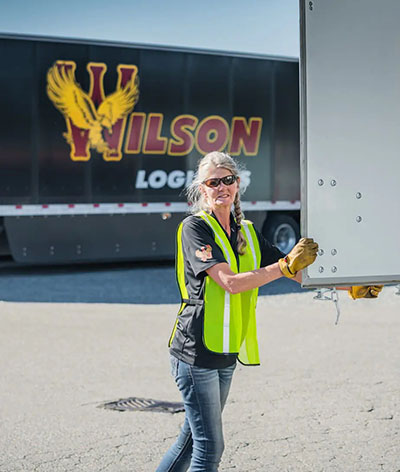
Wilson Logistics is approved through the United States Department of Labor as a registered sponsor for the Military Apprenticeship Program. Wilson Logistics's fifteen month on-the-job learning apprenticeship is designed to help military veterans transition from military life to civilian life successfully into a new career.
You may use your Post 9/11 G.I. Bill benefits to get your CDL, and as a qualifying Veteran, you can earn up to $1,104.75 monthly, tax free, in addition to your professional driver wages, while participating in Wilson Logistics OJL (on-the-job learning) apprenticeship training program.
TruckingTruth's View On Wilson Logistics Company Driver Opportunities

What sets Wilson Logistics apart with the opportunities that they offer is that because of the 3 different divisions they operate, they can get a new driver into a regional or dedicated position rather quickly, compared to other companies, and will work with drivers to fit their preference.
Wilson Logistics Equipment
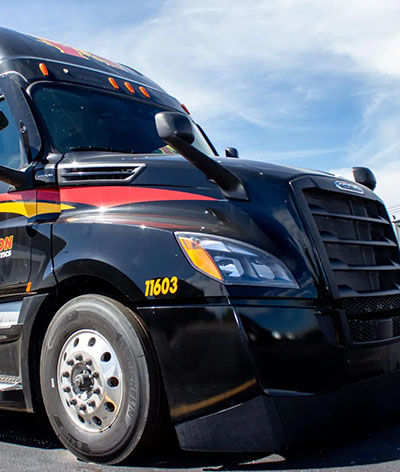
What kind of trucks do you have?
Late Model Freightliner Cascadia’s & Peterbilt 579’s
Do you run electronic logs?
Yes, e-logs are required for every JPT driver
What are your trucks governed at?
62 MPH
Do you have APU units?
All trucks come with APU units







 TT On Facebook
TT On Facebook